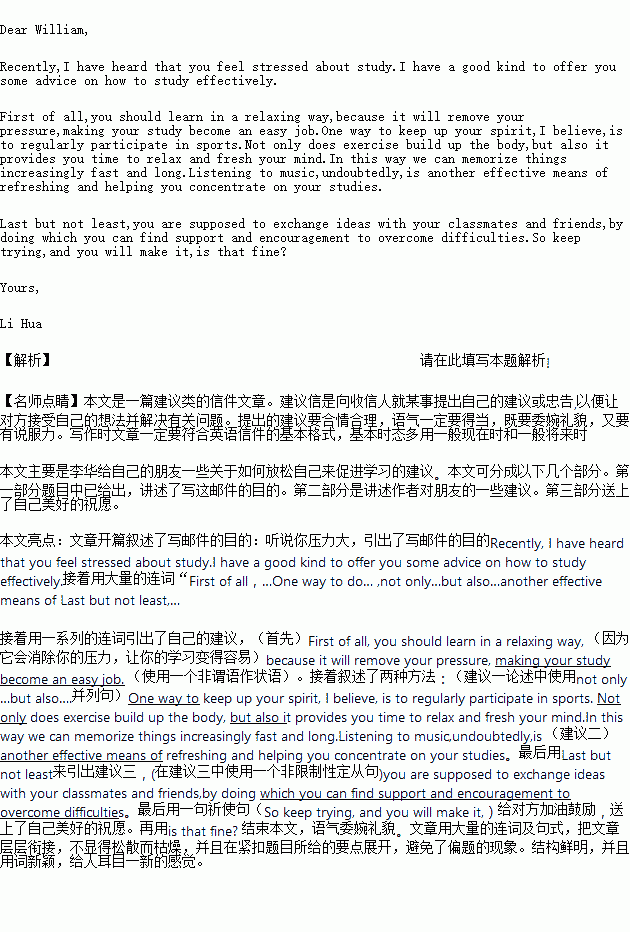Ő‚ńŅńŕ»›
ľŔ…Ťń„ «—ß…ķņÓĽ™£¨Ķ√÷™ļ√Ňů”—William‘ŕľīĹę…ż»ŽłŖ»ż÷ģľ ł–ĶĹ—ßŌį—ĻѶļ‹īů£¨—ßŌį–ßĻŻ…űőĘ£¨«Žń„įī’’“‘Ō¬“™Ķ„łÝňŻ–ī“Ľ∑‚ĶÁ◊”” ľĢ£¨įÔ÷ķňŻ∑Ňň……Ū–ń£¨ŐŠłŖ—ßŌį–߬ °£
1.Ņžņ÷—ßŌį£¨Ī£≥÷”šŅžĶń–ń«ť£Ľ
2.Ľżľę≤őľ”ŐŚ”żĽÓ∂Į£¨ŐżŐżłŤ«ķ“Űņ÷£Ľ
3.∂ŗ”ŽÕ¨—ßĹĽŃų£¨Ľ•ŌŗĻńņÝ°£
◊Ę“‚£ļ
1.ī ż100◊ů”“£¨Ņ™Õ∑ļÕĹŠő≤“—ĺ≠ő™ń„–īļ√£®≤Ľľ«»Ž◊‹ī ż£©£¨Ķę≤ĽĶ√≥≠»ŽīūŐ‚Ņ®ńŕ°£
2.Ņ… ĶĪ‘Ųľ”ŌłĹŕ£¨“‘ Ļ––őńѨĻŠ°£
Dear William,
Recently,I have heard that you feel stressed about study.I have a good mind to offer you some advice on how to study effectively.
____________________________________________________________________________________________
____________________________________________________________________________________________
____________________________________________________________________________________________
____________________________________________________________________________________________
____________________________________________________________________________________________
__________________________________________________________________________
Yours,
Li Hua

